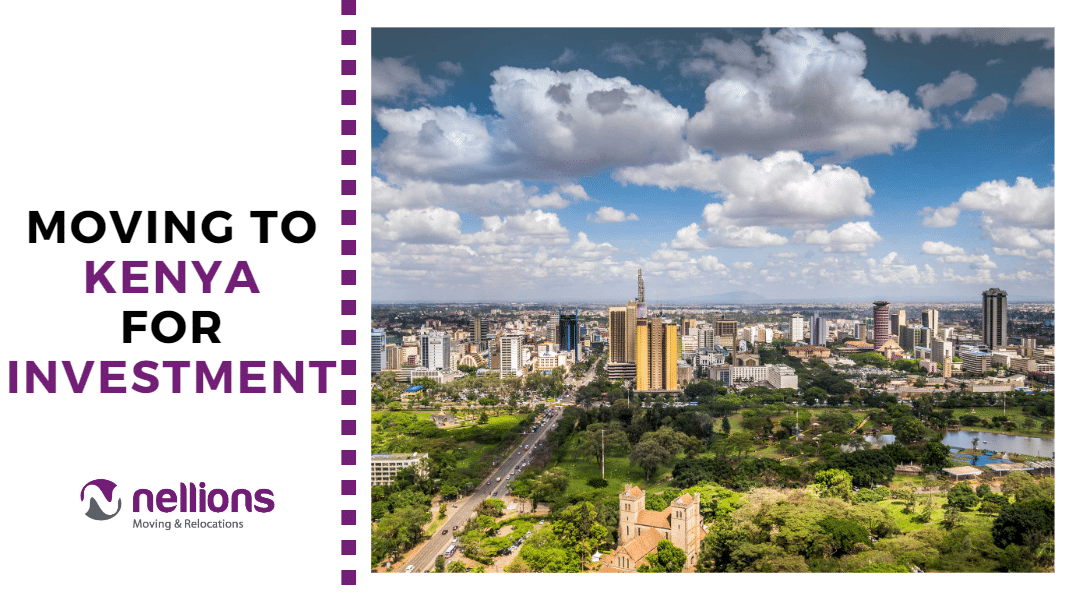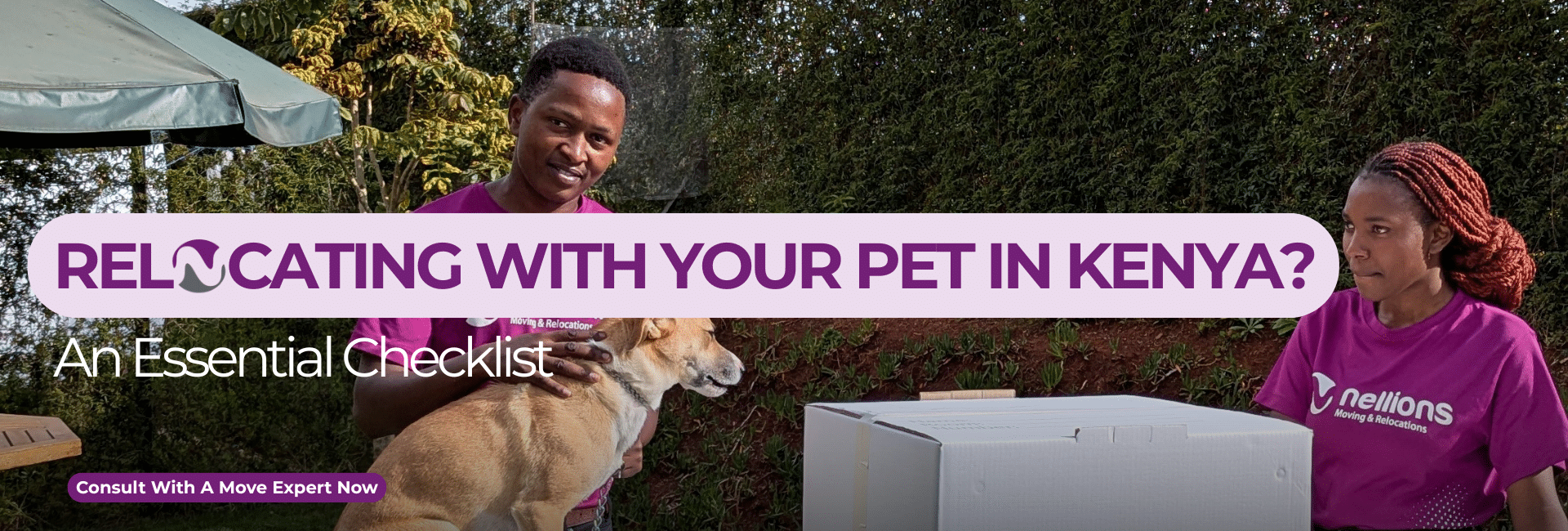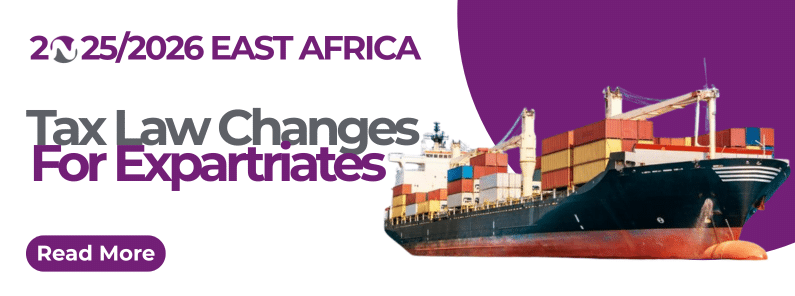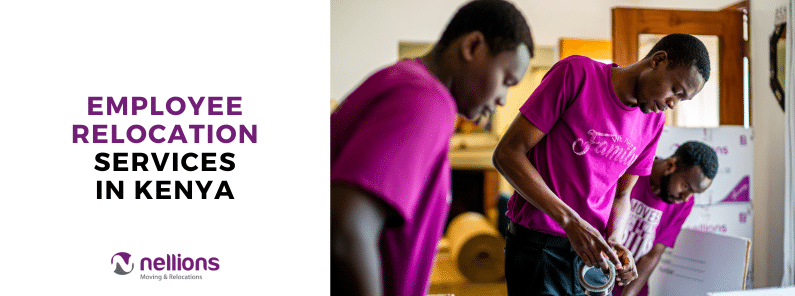Are you considering moving to Kenya to pursue investment opportunities?
Kenya’s dynamic business environment and growing economy make it an attractive destination for entrepreneurs and investors alike. In fact, the country has been touted as poised to become the next “Singapore of Africa.”
However, before you pack your bags and embark on this exciting journey, it’s crucial to understand the legal requirements and processes involved in establishing your business and ensuring a smooth transition to work and live in Kenya.
From obtaining the appropriate permits to registering your company and complying with tax regulations, each step plays a crucial role in setting a solid foundation for your business venture.
To help you navigate this complex landscape, here’s a comprehensive guide outlining the essential steps to make your transition to Kenya as seamless as possible.

1 – You’ll Need an Investor Permit
Foreign nationals or foreign company representatives wishing to invest and run business operations in Kenya must have an Investor Permit.
The Department of Immigration Services issues Investor Permits, also known as Class G permits, to people intending to engage, whether as individuals or in partnerships, in specific trades, businesses, consultancies, or professions in Kenya.
To be officially recognized as an investor, you must:
- Show proof of intended investment of at least USD 100,000 (usually via bank statements)
- Provide proper documentation regarding your company or business (e.g., certificate of incorporation, PIN certificates, tax compliance certificate)
- Indicate current immigration status if already in the country
It can take anywhere between 2 and 6 months to obtain an Investor Permit. These permits are usually valid for 2 years, so you’ll be required to renew yours for continued legal authorization to work in Kenya. In addition to various documents, you’ll also need the following for renewals:
- Two recent passport size colour photos
- Copy of previous permit(s) and pass(es) held
- Valid organisational and individual Tax Compliance Certificates
- List of Kenyans already employed
- Signed current audit accounts
Please note that Kenya neither accepts incomplete applications nor refunds permit processing fees. Therefore, it’s prudent to verify you meet all the prerequisites, including having the required documents, before you apply for the Investor Permit.
Thankfully, you can use Kenya’s e-visa system to obtain a visa if you’d first like to scout the country for investment opportunities.
But while it’s possible to electronically apply for an appropriate visa and visit Kenya, you can’t work with one (hint: a work or investor permit is required). However, you’ll be able to attend conferences, workshops, seminars, or discussions related to your investment interests.
2 – Foreign Investors Must Obtain a KRA PIN
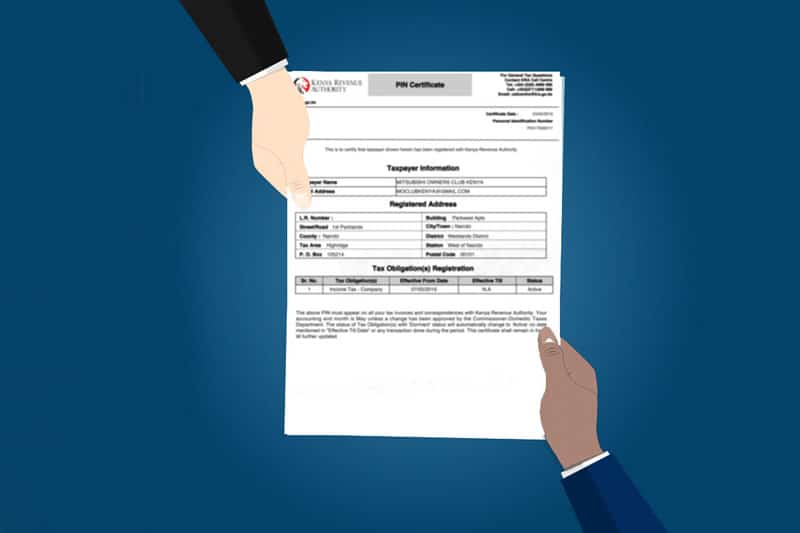
Both Kenyans and foreign investors living and working in Kenya must pay taxes on the income they earn in the country. For this reason, the Kenya Revenue Authority (KRA) issues Personal Identification Numbers (PINs) for tax purposes and to track individual compliance.
Therefore, obtaining a KRA PIN is a top priority if you’re moving to Kenya for investment. It facilitates filing tax returns and obtaining a tax compliance certificate. You also require the PIN to:
- Register a business
- Open bank accounts
- Import or export goods
- Apply for a work permit
- Buy or sell property
You can apply for a KRA PIN by visiting the KRA iTax portal online, clicking on “New PIN Registration,” and using your passport number and official email address.
Expert Tip: Please note that KRA can only directly issue individual or company PINs to foreign nationals with alien cards. If you don’t have one yet, the Kenya Investment Authority (discussed below) can provide you with an endorsement letter to present to KRA for PIN processing.
3 – Your Company Must Be Registered with the Registrar of Companies
It’s not only important but also necessary for any individual moving to Kenya for business or investment ventures to register their company with the Registrar of Companies.
Registering your company gives you legal recognition and protection. It allows you to operate under a business name, apply for licences and permits, and enter into contracts. It may also protect you from personal liability in case of disputes or lawsuits.
Company registration in Kenya is relatively straightforward. You’ll need to log in to your eCitizen account and click on Business Registration Service. You can then make your application, which comprises entering your details and the nature of your business.
As a foreign investor, you want to comply with the legal requirements of the Companies Act in Kenya. These include filing annual returns, paying corporate income tax, value-added tax, and withholding tax. You’ll also need to remit the following deductions from company employees:
- National Social Security Fund (NSSF)
- National Hospital Insurance Fund (NHIF)
- Pay as you earn (PAYE)
Remember, registering your company can help protect your brand and intellectual property (IP) rights by preventing others from using or infringing upon your brand assets. It also gives you better access to funding options and banking services.
Conversely, operating without registration violates the legal requirements of the Companies Act, potentially leading to penalties, legal disputes, and reputational damage.
4 – A Special Pass Is Necessary for a Short Stay in Kenya
It’s necessary to apply for and obtain a Kenya Special Pass from the Department of Immigration Services if you’re a foreign national wishing to enter or remain in Kenya to:
- Apply for a permit or pass
- Temporarily conduct any business, trade, or profession
- Apply for a review of a decision denying a work permit
The Special Pass is a temporary permit that allows an investor to work in Kenya for up to 3 months while waiting for their work permit to be processed.
To apply for the Special Pass, you’ll need to access the electronic Foreign Nationals Services (eFNS) portal using your eCitizen account. While there, duly fill and sign the Form 32 – Special Pass online application form, print it out, and have it stamped by your organisation.
Additionally, attach a copy of any official receipt or acknowledgement if you’re waiting for permits processing, as well as:
- A detailed cover letter from yourself or your organisation
- Your current immigration status if already in the country
- A copy of the registration certificate of your organisation
- Your academic and professional certificates
- 2 current passport size colour photographs
- Clearance letters from relevant authorities
- Copies of any permits or passes held
- A copy of your valid national passport
Important to remember is that a notification of approval is NOT an authority to engage in business, employment, or residence. You must first obtain the Special Pass as operating without it (or any other requisite permit or pass) is an offence.
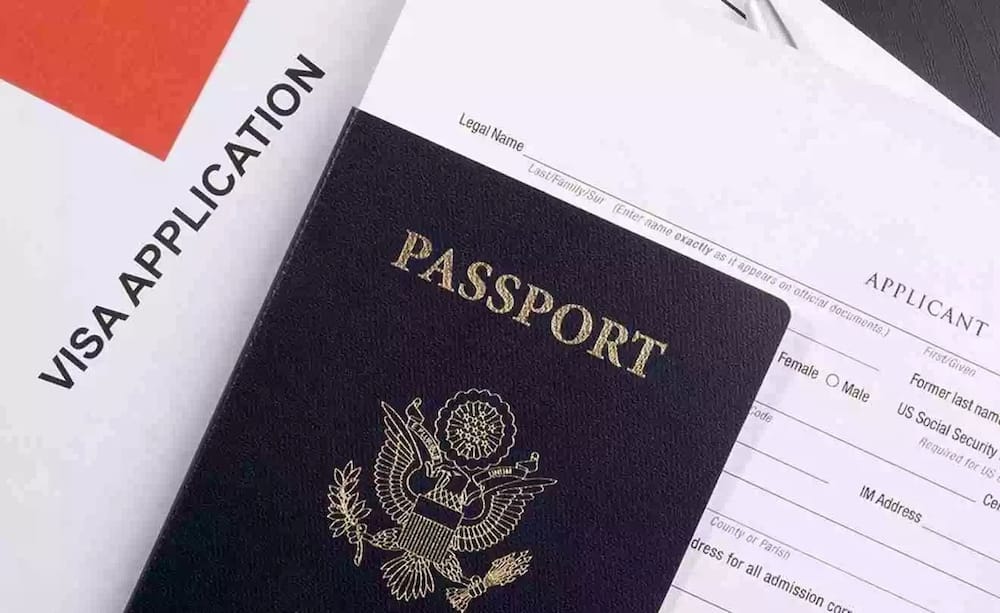
5 – You Need an Alien Card (Foreign Nationals Certificate) if Staying Longer than Three Months
Kenya legally requires all foreigners residing in the country for a period exceeding 90 days be registered. However, some individuals are exempted from Foreign National Registration, including:
- Serving members of the armed forces
- Public officers and their spouses and children
- Refugees registered under the Refugee Act, 2006
- Individuals exempted by the Kenya Citizenship and Immigration Act, 2011
You’re also exempted from applying for an alien card if residing in Kenya for a continuous period not exceeding three months and in possession of a special pass or visitors pass.
To apply for the foreign nationals certificate, follow similar steps as when applying for the Special Pass. However, you’ll be required to complete Form 50 instead of Form 32.
6 – Register with KenInvest to Obtain an Investment Certificate

The Kenya Investment Authority (KenInvest) offers foreign investors a one-stop shop service that facilitates investments in various sectors, including agriculture, manufacturing, tourism, energy, and ICT.
Foreign investors who register with KenInvest are issued investment certificates upon request, provided they have proof of investing at least 100,000 USD or its equivalent. Local investors must have invested one million Kenya shillings or its equivalent to get this certificate.
An investment certificate, valid for two years and renewable upon request, gives you access to various benefits and incentives, including:
- Expedited issuance of any additional licences required for your operations (except for health, security and environmental certificates) for a maximum period of one year
- Three class D entry permits for management or technical staff and three class C, F or G entry permits for owners, shareholders or partners for a maximum period of two years
- Access to relevant investor information, as well as pre-investment and after-care services
Registering with KenInvest also entitles you to facilitation in relation to:
- Immigration services
- Foreign taxpayer registration
- Federation of Kenya Employers (FKE) services
- Kenya Power and Lighting Company (KPLC) services
- National Environmental Management Authority (NEMA) information
Obtaining an investment certificate is highly recommended. It’ll save you time and money by simplifying the process of obtaining licences, permits, and other services, and help you invest with ease and confidence.
7 – A Work Permit Is Required to Legally Work in Kenya
Foreign investors wishing to legally work in Kenya must have an approved work permit from the Directorate of Immigration Services.
There are several permit classes in Kenya. While you could apply for the relevant permit yourself through eFNS, a better route would be to get facilitated by KenInvest.
Kenya offers work permits to investors moving for investment in different industries, including:
- Class A: Prospecting and mining
- Class B: Agriculture and animal husbandry
- Class C: Prescribed profession
- Class D: Specific employment
- Class F: Specific manufacturing
- Class G: Specific trade, business, or consultancy
Work permit approval can take anywhere from 2 months to 6 months, so don’t wait until your Special Pass has almost expired to get the application process going.
A Notification of Approval will be issued if your application is successful, while a Notification of Rejection is issued if unsuccessful. Once your permit is processed and issued, print it out from your eFNS account, and get right on with conducting business in the country.
Remember, you can’t just switch and change professions once your work permit is approved. Instead, you must first notify the Directorate of Immigration Services of your intentions, then wait for authorisation and approval.
Expert Tip: Your spouse or children (under 21) may need to process a Dependant’s Pass if they’re moving to Kenya with you. But remember, they can only be granted this pass if you hold a valid entry and work permit (with at least six months to expiry).
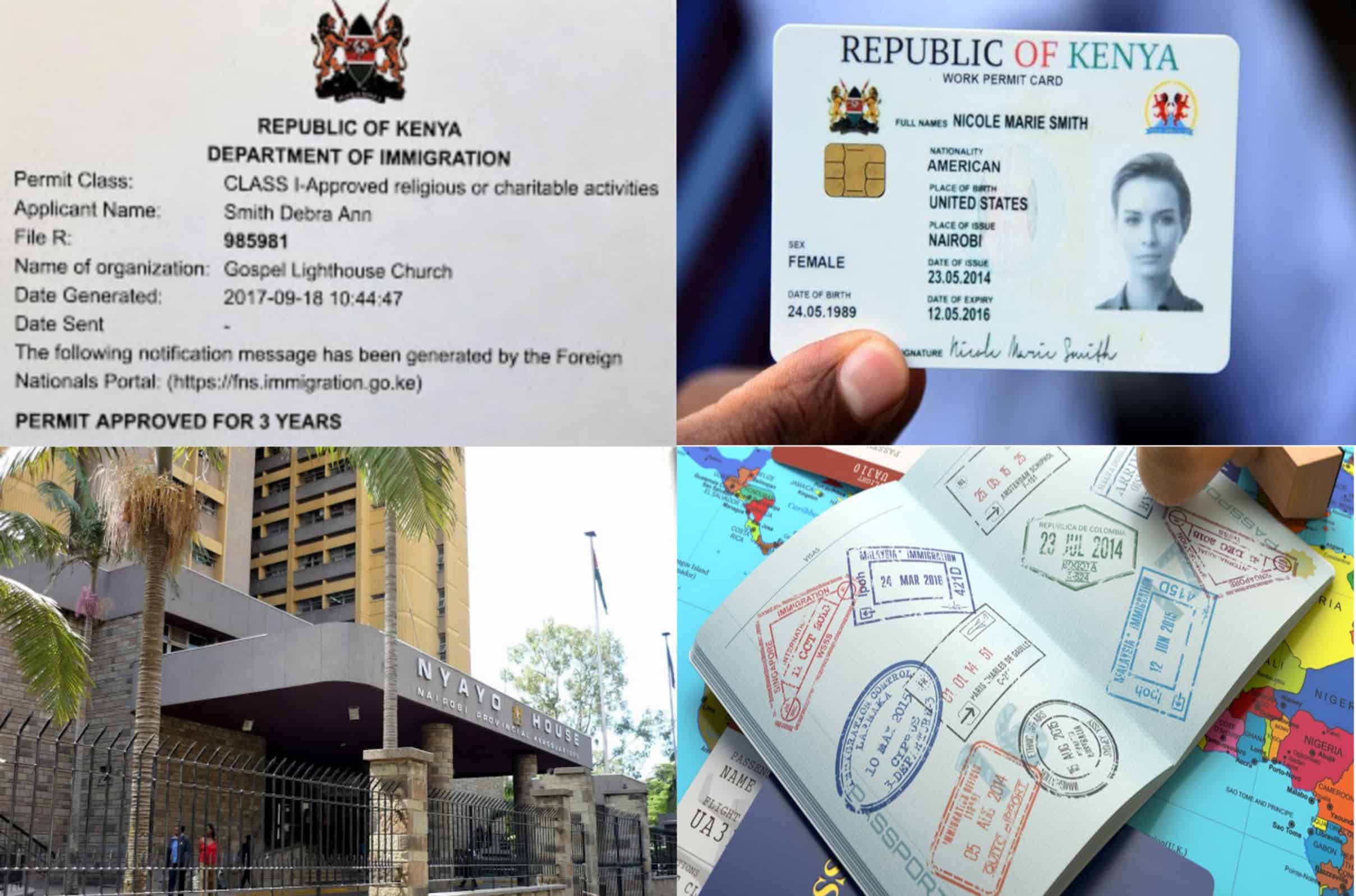
8 – You Can Import Household Goods and Personal Effects Duty-Free
Foreign investors relocating to Kenya are eligible for duty-free importation of their used household goods and personal effects.
However, you must be a first arrival who hasn’t resided in Kenya before your arrival—other than on a temporary non-resident visa. You can’t also have been granted a similar duty exemption before.
For your household goods and personal effects to qualify for duty-free importation, they must:
- Have been in your possession and use for at least one year
- Be imported within 90 days of being issued a Kenyan work permit
- Not be lent, sold, or disposed of in any other way in the duration of your stay
Kenya also allows first arrivals with approved work permits to import one vehicle duty-free, so you can relocate with your used car. But like with the duty-free importation of used household goods, you must have a work permit that’s valid for at least 2 years to qualify.
As you import your personal effects, it’s important to keep in mind that Kenya subjects all non-diplomatic shipments to 100% physical verification. You must also be physically present in the country for customs clearance.
Our guidelines on moving to Kenya explain comprehensively what you can expect around the importation of used household goods and personal effects.
Customs clearance procedures also vary slightly depending on whether you’re importing air shipments to Kenya or sea shipments.
Remember, wait until after you’ve received your investor or work permit before you dispatch your household goods and personal effects from your origin country.
9 – Apply for Permanent Residency (work permits for at least 7 years)

If your investment journey in Kenya has far exceeded your expectations or if you’ve completely fallen in love with Kenya, you might want to consider applying for permanent residency.
Permanent residency gives you the right to live and work in the country without needing a visa or work permit. You can also own property, change jobs, and explore numerous opportunities without needing authorization.
To become a permanent resident, you must:
- Have held Kenya work permits for at least seven years
- Be a spouse or dependent child of a Kenyan citizen or a permanent resident
- Have been continuously resident in the country for the three years immediately preceding your application
- Have made or be capable of making an exceptional contribution to the economic, social, or cultural development of Kenya
Like with other foreign nationals services, you’ll need to make an application through the eFNS portal. Once your application is approved, pay the issuance fees, then collect your certificate in person at the Directorate of Immigration Services offices at Nyayo House.
10 – Involve Professionals at all Steps
Navigating the legal requirements and processes involved in setting up a business or making investments in Kenya can be complex and time-consuming.
That’s why it is highly recommended to involve professionals who have expertise in local laws and regulations.
Seeking the assistance of legal advisors, immigration consultants, and tax experts can greatly streamline the entire process and ensure compliance with all necessary procedures.
Moreover, involving professionals not only ensures that you meet all legal obligations but also provides you with peace of mind, knowing that your business operations are in line with local regulations.
So, whether you’re an aspiring entrepreneur or a seasoned investor, seize the opportunities that Kenya has to offer, armed with the knowledge and understanding of the essential steps required to establish and grow your business.
And when you decide to relocate, contact moving experts experienced in international removals for a hassle-free experience.
With a solid foundation and the support of professionals, you can confidently embark on your journey to build a thriving business in the vibrant Kenyan market.




